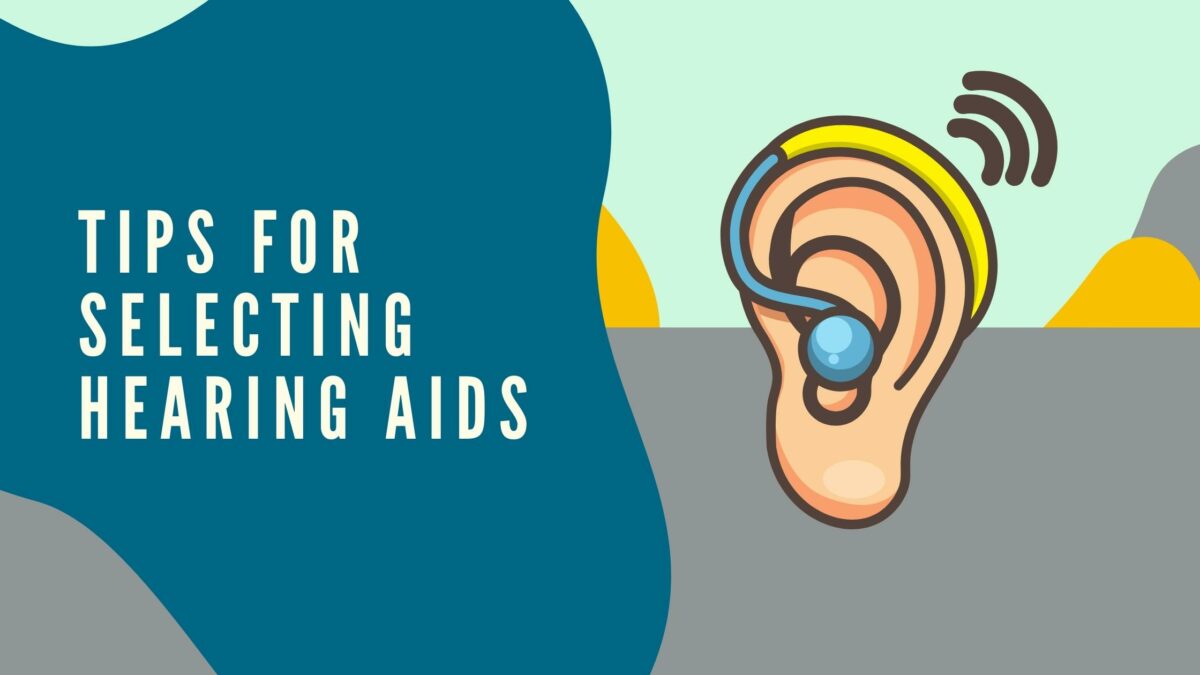With so many styles and features available in hearings aids, choosing the right pair can feel overwhelming. However, if you are arriving at this daunting task, congratulations are in order! Often taking the leap and having your hearing tested is the most daunting task. On average it takes people 10 years from the time they suspect they have a hearing loss to seek treatment. This is in part due to denial and often to the fact that hearings loss is difficult to self-diagnose. However, the next step is easier. Now that we know the exact nature of your loss, including what frequencies, tones, and pitches you struggle with, we can help you find the best hearing aids for you. Here are a few tips we use in the profession to help optimize your hearing, so you get the most out of your new devices.
We are Here for You
Besides testing and diagnosing your hearing, part of our job is finding the best hearing aids for you. This isn’t only amplification but also focuses on your lifestyle. When you arrived for your hearing test we not only tested and recorded your hearing ability on an audiogram. We also interviewed you about your lifestyle. This may have included your favorite hobbies, your daily routine, your line of work, and other health issues. We ask questions like these because it helps us better understand what hearing aids might work for you.
Many of you prefer a smaller discrete pair of hearing aids, that are barely noticeable to most people. Others may enjoy larger hearing aids with greater power for those with more profound loss and dexterity issues. If you enjoy being outside, we can recommend hearing aids that offer wind suppression for those blustery days and water resistance to repel sweat and even a surprise rain shower. Meanwhile, others of us may enjoy hearing aids with wireless Bluetooth technology so we can connect seamlessly with our TV and Stereo.
Understanding Different Hearing Aid Styles
There is a wide range of styles and sizes. Some larger hearing aids can provide more power for longer battery life and more amplification power, while smaller hearing aids are discrete and easily portable. Understanding your options is a great place to start. Though we are here for any questions you may have. Common styles include
- Completely in canal (CIC): these tiny hearing aids are small and lack power so recommended only for those with mild to moderate hearing loss
- In the canal (ITC): for mild to mildly severe hearing loss. These custom hearing aids rest comfortably in your ear canal.
- Behind the ear (BTE): larger, these hearing aids provide the most amplification, making them the preferred solution for people with severe-to-profound hearing loss.
- Receiver in the ear (RITE): a hybrid of In the Canal and Behind the Ear (BTE) hearing aids. A discreet wire connects the hearing aid to the receiver which transmits sound directly into the ear.
Try Them On!
We understand that investing in hearing aids is a significant purchase and change. That is why we offer a trial period, to ensure that the hearing aids you have chosen are the right ones for you. Hearing aids take a couple of weeks to get used to. For many, even the sound of their voice surprises after years of living with unaddressed hearing loss. Fortunately, you don’t have to worry about choosing incorrectly. Even after your initial purchase there will be several follow-up visits to fine tune your hearing aid program and make sure that the model you’ve chosen is just right for you. Don’t be afraid to try on pairs till you have the right fit. Your hearing is important, and it may take time to get it just right.
Consider Your Investment
Hearing aids are not only an investment in your hearing but an investment in your relationships at home and a professional setting. A study from the Better Hearing Institute found that on average those with hearing loss who don’t use treatment made $30,000 less annually than those with hearing aids or normal hearings. Even so, hearing aids with all the features just may be out of your price range just now. We can help you decide what features you can live without and which ones are essential based on your budget. However, if you want the best in hearing technology, there are payment plans available so you can pay it off over time while enjoying the most out of your hearing aids.
If you want to find out more, do not hesitate to schedule a consultation with us today. We can discuss your options and find the best solution for you.

